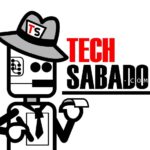TECH NEWS | PH ranks 48th in ‘Digital Quality of Life’ index
The DQL study was conducted by the cybersecurity company Surfshark and evaluates countries based on a set of five fundamental digital wellbeing pillars.

The third annual edition of the Digital Quality of Life Index (DQL) ranks the Philippines 48th among 110 countries. The global digital wellbeing study showed that the Philippines climbed by 18 places since last year and surpassed Indonesia
Covering 90% of the global population, the DQL study was conducted by the cybersecurity company Surfshark and evaluates countries based on a set of five fundamental digital wellbeing pillars. The Philippines showed strong results in internet quality (20th) and e-security (30th), but lagged behind in internet affordability (72nd), e-infrastructure (63rd), and e-government (67th).
Overall, the Philippines has demonstrated one of the most significant improvements compared to the DQL 2020, rising from 66th place to 48th and surpassing Indonesia. Also, the Philippines’ internet affordability improved by 156%.
People in the Philippines have to work approximately 5 hours to afford the cheapest broadband internet package, 2 hours 18 minutes less than a year before. However, the Philippines remained on the lower end of the internet affordability index, ranking 72nd.
The study found that the country’s internet quality was one of the best worldwide – the Philippines ranks 20th and demonstrates the fastest mobile and broadband speed growth YoY. The Philippines’ e-security was also around 20% better than the global average. The country ranks 30th worldwide, surpassing New Zealand, Australia, and one of the DQL leaders, South Korea.
The research also shows that the Philippines has room for improvement with its e-infrastructure – the country ranked 64th in this pillar, and was surpassed by neighboring Thailand and Malaysia.
“Digital opportunities have proved to be more important than ever during the COVID-19 crisis, stressing the importance for every country to ensure fully remote operational capacities for their economies,” said Vytautas Kaziukonis, chief executive of Surfshark. “That is why, for the third year in a row, we continue the Digital Quality of Life research, which provides a robust global outlook into how countries excel digitally. The index sets the basis for meaningful discussions about how digital advancement impacts a country’s prosperity and where improvements can be made.”
In an all-around picture, 6 out of 10 countries holding the highest scores were located in Europe, following last year’s trend. Denmark ranked 1st in DQL for the second year in a row and was closely followed by South Korea. Finland ranked 3rd, while Israel and the U.S. round out the top five of 110 nations that were evaluated. The bottom 5 countries were Ethiopia, Cambodia, Cameroon, Guatemala, and Angola.
Regionally, the U.S. stood out as a country with the highest digital quality of life in the Americas, while South Korea took the leading position in Asia. Among countries in Africa, people in South Africa enjoyed the highest quality of their digital lives whereas Australia led in Oceania, outperforming New Zealand in various digital areas.
Other significant findings of the report revealed that broadband was globally less affordable this year. In comparing countries included in both DQL20 and DQL21, people have to work 11% more (25 min more) to afford broadband internet in 2021. However, people have to work 29% less (28 min less) to afford mobile internet this year.
While, the world’s worst internet was the least affordable, stating that people in some countries, such as Nigeria, Côte D’Ivoire and Mali require approximately a week’s worth of work to afford the internet.
Further, the report indicated that investing in electronic infrastructure and electronic government contributes to people’s digital wellbeing the most.
The 2021 DQL research examined a total population of more than 6.9 billion people in terms of five core pillars and 14 underpinning indicators that provide a comprehensive measure. The study is based on open-source information provided by the United Nations, the World Bank, Freedom House, the International Communications Union, and other sources.




